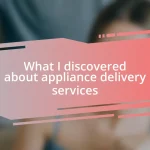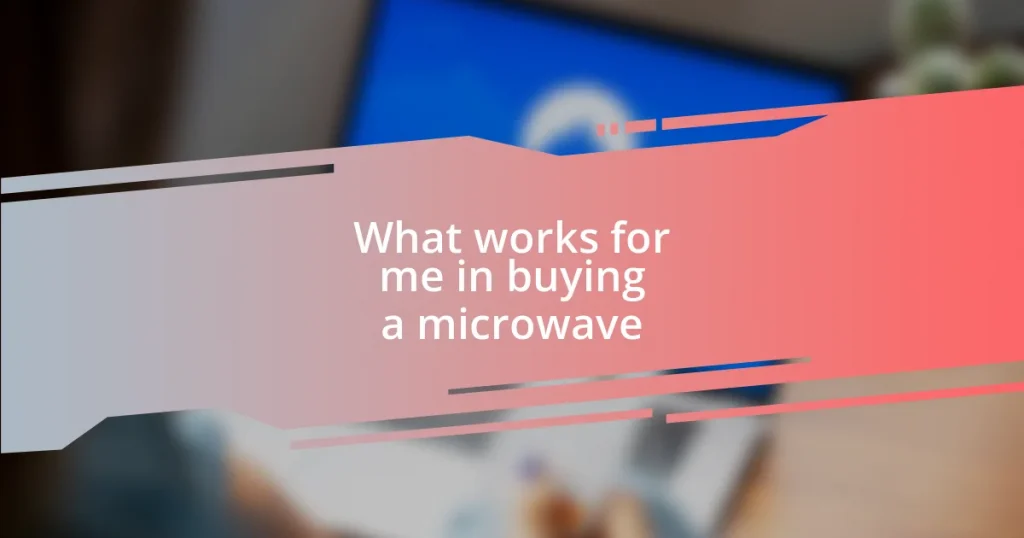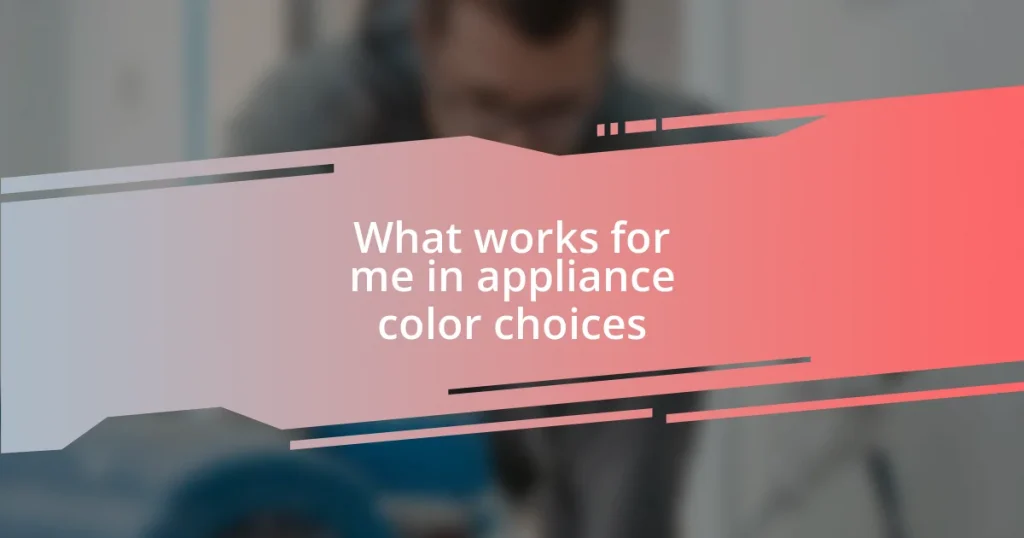Key takeaways:
- Engaging with local lawmakers begins with understanding the lawmaking process and identifying key representatives who align with your values.
- Building genuine relationships through personal interactions, follow-ups, and shared interests enhances advocacy effectiveness.
- Sustaining long-term connections involves regular communication, celebrating successes together, and consistently participating in community events.

Understanding Local Lawmaking Process
Understanding the local lawmaking process is essential for anyone wanting to make a difference in their community. I remember the excitement I felt during my first town hall meeting, sitting among neighbors who shared my concerns. It struck me how crucial these gatherings are for expressing our voices and influencing our local representatives.
As I delved deeper, I learned that local laws often start as proposals, which can seem so distant from the average citizen. Have you ever thought about how many people can be involved even before a bill comes up for a vote? When I reached out to my local lawmakers, I found they genuinely appreciated hearing from constituents like me; it made the process feel less like a bureaucratic maze and more like a collaborative effort.
With each step taken — from proposal to public hearings — I came to see local lawmaking as a vibrant exchange rather than a stagnant process. It’s empowering when you realize your input can shape policies that directly affect your life. That realization alone drives me to stay engaged: if I can help guide decisions that impact my community, why wouldn’t I?

Identifying Key Lawmakers to Engage
To effectively engage with local lawmakers, identifying the key players in your community is essential. I remember scanning through the town’s website, where I stumbled upon a list of elected officials that immediately made my heart race with possibility. Understanding who to approach is the first step; it can often make or break your efforts.
Here are some strategies that helped me pinpoint key lawmakers to engage:
- Research Local Governance: Dig into the structure of your local government to find out who the decision-makers are.
- Attend Community Events: Participate in town hall meetings and public forums to see who consistently attends and speaks.
- Engage with Local Advocacy Groups: Connect with organizations focused on issues you care about. They often have insights on influential lawmakers.
- Utilize Social Media: Follow local representatives and observe their interactions with constituents to gauge their responsiveness and priorities.
- Network with Other Constituents: Talk to neighbors and community members who have had success advocating for issues; they can provide valuable contacts.
Finding the right lawmakers to engage isn’t just about authority; it’s about alignment with your values and priorities. When I reached out to a council member who championed environmental initiatives, I felt an instant connection because it showcased a shared passion for preserving our local parks. It’s inspiring to think that these individuals hold the power to amplify our concerns, providing a direct line to the heart of local legislation.

Building Relationships with Lawmakers
Building relationships with local lawmakers is about more than just voicing your opinions—it’s about fostering genuine connections. I remember the first time I decided to invite a local representative out for coffee. It felt a bit nerve-wracking, honestly! But as we chatted, I realized that lawmakers appreciate a personal touch. Sharing my experiences as a resident helped bridge the gap, making the conversation feel less formal and more like a dialogue between friends.
It’s fascinating how a simple conversation can plant the seeds for collaboration. I engaged in a few follow-up conversations, each more comfortable than the last. During one meeting, I shared my concerns on community safety, and to my surprise, the lawmaker was already working on initiatives that aligned perfectly with my thoughts. This proactive approach demonstrated that lawmakers can be receptive and genuinely care about their constituents’ experiences.
Building these relationships requires persistence and sincerity. I learned that sending regular updates about community events or expressing appreciation for their efforts can keep lines of communication open. Have you ever tried sending a thank-you note after a constructive meeting? I did this once, and it sparked a delightful conversation that turned into a collaborative effort on local projects. When lawmakers see you as a partner rather than just a voice, it truly elevates the entire engagement experience.
| Building Relationships | Tips for Success |
|---|---|
| Engagement | Be proactive in initiating conversations |
| Follow-up | Send updates and express appreciation |
| Shared Interests | Find common ground on issues |
| Networking | Connect with other constituents to gain insights |

Crafting Effective Communication Strategies
Crafting effective communication strategies involves understanding your audience, especially local lawmakers. I recall preparing for a meeting by jotting down key points that resonated with issues I knew were important to them. It helped me articulate my concerns more effectively. Have you considered how tailoring your message can influence a lawmaker’s receptiveness? It truly makes a difference.
During one presentation, I utilized storytelling to highlight the impact of a local policy. Sharing a brief anecdote about my neighbor’s struggle with zoning laws enriched my argument, bringing it to life in a way statistics alone couldn’t. This combination of emotion and relatable experience not only captured the lawmaker’s attention but also deepened my connection with them. It’s astonishing how personal stories can serve as powerful tools in advocacy.
Moreover, I learned the importance of clarity and brevity in communication. When I crafted my emails, I focused on concise, impactful statements rather than lengthy descriptions. After all, lawmakers receive numerous messages daily; making yours stand out is vital. Have you ever considered how presenting a clear call to action can shift the conversation in your favor? It’s one of the most effective techniques I’ve employed.

Organizing Community Advocacy Initiatives
Organizing community advocacy initiatives is a powerful way to bring about change. I remember when a small group of us came together to address the recycling issues in our neighborhood. We didn’t have a big budget or extensive background in activism. What we did have was passion and a shared vision for a cleaner environment. We started by hosting a casual meet-up at a local park, where we brainstormed ideas and formulated a plan together. That first gathering sparked a sense of community that I hadn’t experienced before.
As we planned our initiatives, I learned that clarity in our goals was crucial. We decided to create a campaign with tangible objectives, such as organizing monthly clean-up days and presenting our findings to city officials. I can’t stress enough how empowering it felt to see our small group transform into a larger coalition, connected by a common purpose. Each step we took reinforced our commitment. I still smile when I think about how we engaged local schools; the students were eager to participate, and their enthusiasm was contagious!
To rally support, we also reached out to local businesses for partnerships. I can remember walking into my favorite café and having a heartfelt conversation with the owner about our mission. His willingness to donate refreshments for our events reaffirmed that businesses can play a pivotal role in community advocacy. Have you considered how local businesses can enhance your initiatives? It’s remarkable how collaborative efforts, built on mutual interest and respect, can amplify your message and bring about real change.

Measuring Impact of Engagement Efforts
Measuring the impact of engagement efforts goes beyond just tallying responses; it’s about reflecting on the qualitative changes in relationships and policy discussions. For instance, after initiating a dialogue with my local representative, I noticed that they began referring to my concerns in subsequent community meetings. It’s not just about what was said; it’s about creating a shift in how our issues were perceived. Have you ever thought about the ripple effect of your conversations? Each invite to discuss local matters can lay the groundwork for more substantial influence.
I found it helpful to track not just responses but also the development of ongoing conversations. One memorable moment was when a proposal I advocated for was brought up in a city council meeting, and I felt a sense of pride that my voice contributed to that agenda. By documenting these instances, I could see a clearer picture of our efforts’ influences over time. What kinds of feedback mechanisms have you set up to gauge your advocacy’s success? It might surprise you how simple notes can reveal transformative trends.
Finally, taking the time to solicit feedback from lawmakers, whether through informal chats or structured follow-up surveys, can provide valuable insights. After expressing my concerns about housing policies, I asked for their thoughts on our discussions later. They appreciated the opportunity, and it deepened our rapport. Have you considered how asking for feedback could strengthen your advocacy efforts? Such interactions not only show your commitment but also open pathways to further meaningful dialogue.

Sustaining Long-term Legislative Relationships
Maintaining long-term legislative relationships is like nurturing a garden; it requires patience, consistency, and a genuine interest in growth. In my experience, I’ve found that scheduling regular check-ins with lawmakers—whether over coffee or a casual lunch—can keep the channels of communication open. It’s during these unstructured conversations that true connections form, enabling lawmakers to see you not just as an advocate, but as a trusted partner in addressing community issues.
Building on that foundation, I’ve learned the importance of celebrating milestones together. When a bill I supported passed, I made a point to send a handwritten note thanking the lawmaker for their efforts. That simple gesture sparked a heartfelt response and reinforced our connection. Have you considered how sharing successes can strengthen your relationships with local representatives? These moments of recognition create a sense of camaraderie that can pave the way for future collaboration.
Lastly, showing consistent engagement is crucial for longevity. I make it a habit to attend local events and forums where lawmakers are present, not just to advocate but to genuinely listen to their concerns and priorities. It’s fascinating how these interactions can shift the dynamic from a transactional relationship to one of mutual respect. Have you thought about how being present at key events can impact your advocacy? I believe that when lawmakers see you genuinely invested in the community, it cultivates trust and opens doors to deeper discussions.















